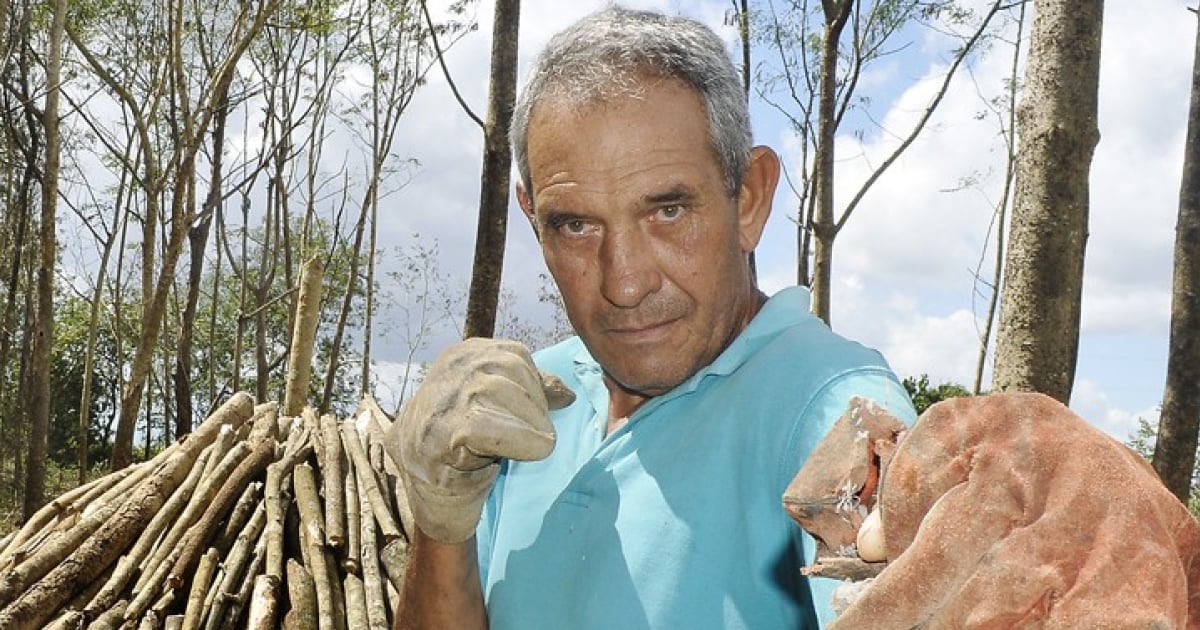Once a shining star in the realm of Cuban boxing, Félix Lemus contributed to the nation's impressive collection of medals. However, his story didn't enjoy the same triumphant ending as some of his contemporaries. Now 64, Lemus lives far removed from the boxing ring and even further from the recognition he deserves. His voice, tinged with disappointment, serves as a stark reminder of the neglect faced by many Cuban athletes after their retirement.
In a recent interview with the official newspaper Trabajadores, Lemus opened up about the challenges he's faced for years. He resides in a rural area, working the land to make ends meet, surviving on just over 3,000 pesos a month—a token amount given his status as an internationalist fighter—while battling deteriorating health. "No one knows or cares about me," he lamented.
Achievements and Unacknowledged Triumphs
Lemus wasn't just any boxer. He was the national champion in 1985, a runner-up in 1984 and 1986, and a medalist in the Playa Girón and Córdova Cardín tournaments, securing gold at the 1983 Central American and Caribbean Games. He competed in the heavyweight division during an era dominated by Teófilo Stevenson. Remarkably, Lemus was never knocked out by Stevenson, a feat not many of his peers could claim. "I always lost to him, once by a 3-2 decision. But he never knocked me out," Lemus said proudly. "I entered those matches confidently. What could happen? Getting knocked out? That happened to almost everyone," he added.
Struggling with Health and Institutional Neglect
Today, Lemus suffers from severe physical ailments, including four herniated discs and a previous cervical surgery, along with having endured a heart attack. His wife, a cancer survivor, is also unable to work and receives no pension. "We moved here to survive. Living in the city is impossible," he emphasized.
Years ago, Lemus sought a housing change, as eight people lived in a cramped two-bedroom apartment. Despite his situation being known to provincial authorities, he never received a response. This neglect is further illustrated by an anecdote: "Many years ago, the Athlete Support Commission gave me a bathroom set. They promised to buy the tiles. That's where it ended."
Bureaucratic Barriers and Unrecognized Contributions
One reason Lemus doesn't receive the support afforded to other retired athletes is his bureaucratic classification. He's considered a "notable figure" rather than a "sporting glory," a distinction that limits his access to certain benefits. "I don't understand it," he expressed with frustration. "I didn't compete in the Olympics or World Championships. Stevenson was there. I won gold in Playa Girón and Giraldo Córdova Cardín tournaments, was the 1983 Central American and Caribbean champion, and medaled in various European events."
In Cuba, sporting glories often receive state support, while notable figures frequently fade into obscurity, their achievements seemingly unworthy of remembrance or gratitude.
Racism and a Forced Exit from Boxing
Lemus also disclosed the painful reasons for his departure from boxing: a heated argument with legendary coach Alcides Sagarra and personal experiences with racism. "I felt the racism. I tell the truth. In boxing, white athletes weren't favored for competitions. If you complained, it was dismissed as a technical decision," he explained.
"At some point in my career, I faced unfair treatment. Competing in the Olympics would have been amazing, but my friend Teófilo Stevenson was there. It was impossible," he acknowledged.
A Story Shared by Many Forgotten Athletes
Félix Lemus's tale is not unique. In recent years, similar stories have emerged of Cuban athletes who, after dedicating their prime years to sports and representing Cuba globally, end their days in neglect, with meager incomes and without access to a dignified life.
From his small plot of land, Lemus continues to fight—not in the ring, but against indifference. His words should not go unheard. "No one knows or cares about me." One can only hope that someone, beyond a fleeting interview, will listen.
Cuban Boxing and Government Neglect
Why does Félix Lemus feel neglected by the Cuban government?
Félix Lemus feels neglected because despite his contributions to Cuban boxing, he receives minimal financial support, lives in poor conditions, and struggles with health issues without adequate institutional help.
What achievements did Félix Lemus accomplish in his boxing career?
Félix Lemus was a national champion in 1985, runner-up in 1984 and 1986, and won gold at the 1983 Central American and Caribbean Games. He also participated in the Playa Girón and Córdova Cardín tournaments.
How does Lemus's classification affect his access to benefits?
Lemus is classified as a "notable figure" rather than a "sporting glory," which restricts his eligibility for certain benefits and support typically granted to top athletes in Cuba.
What personal experiences did Lemus face that led to his departure from boxing?
Lemus left boxing due to a disagreement with coach Alcides Sagarra and the racism he experienced, which he felt affected decisions regarding athlete selections for competitions.
